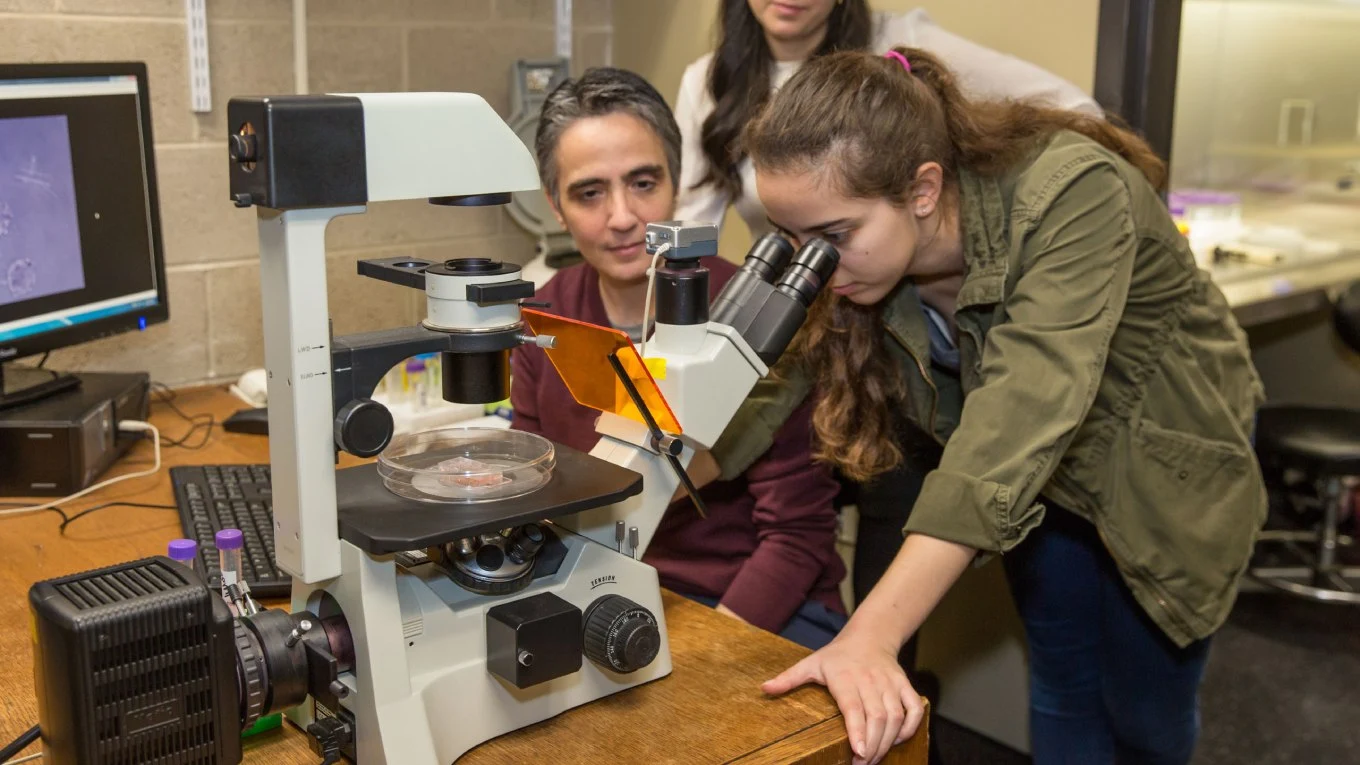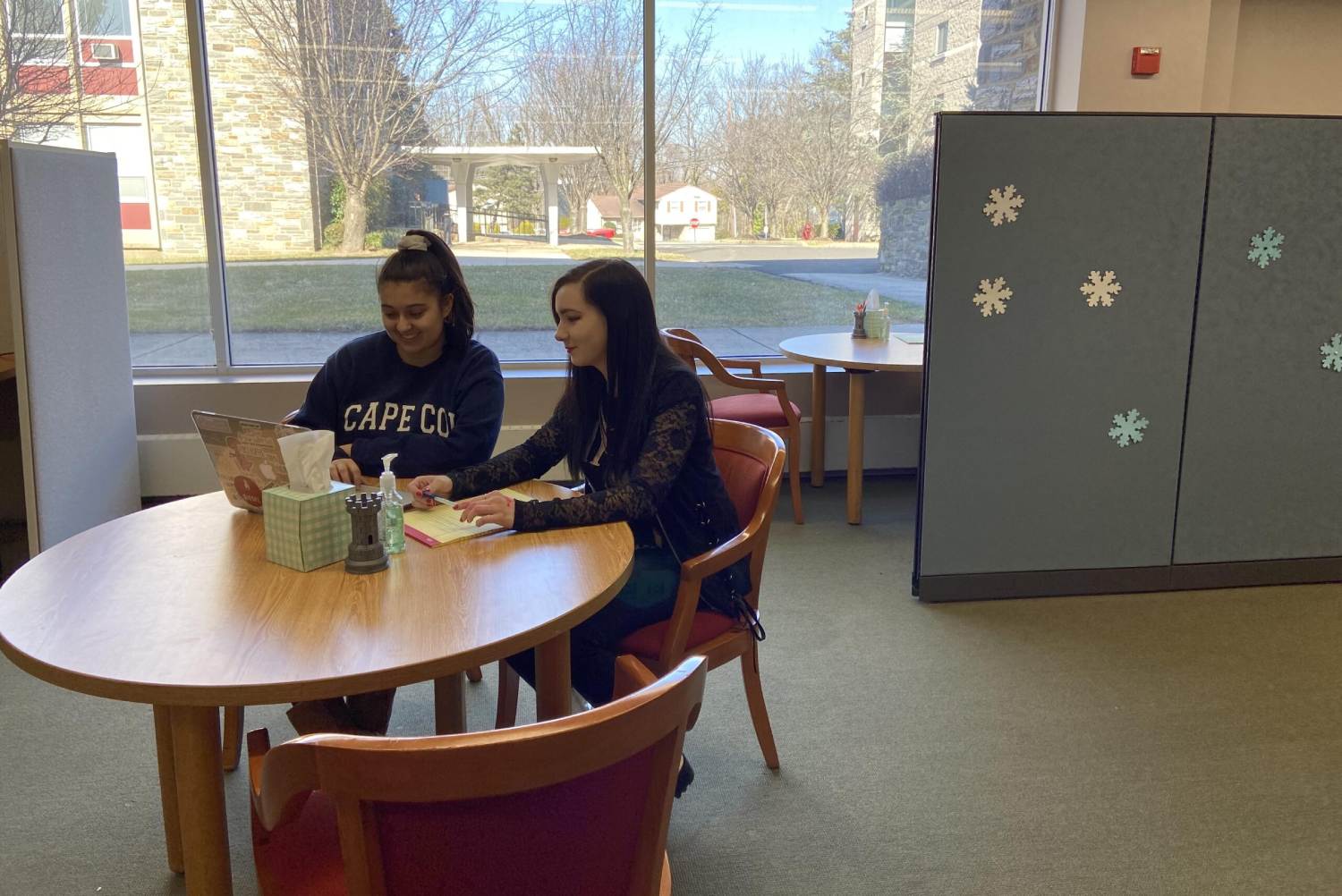
Advising Goals and Expectations
Goals
These academic advising goals provide focus for the student-advisor partnership.

Expectations
These expectations for students describe how students can take the initiative, self educate, and embrace their responsibilities.
These expectations for advisors outline how advisors support and guide their advisees.
Academic Essentials
Graduation Requirements
Undergraduates must accomplish three things in order to graduate from Arcadia:
- Complete 120 credits.
- The “Overall Credits” line at the bottom of a student’s unofficial transcript (available on Self-Service) keeps track of progress.
- Complete the requirements of one’s Major.
- The requirements for every major are described in the Undergraduate Catalog and can be tracked on a student’s Academic Plan (available on Self-Service). You can use the Arcadia specific Major Maps (below) to explore a typical path and course sequence to graduation.
- Complete the requirements of the Arcadia Undergraduate Curriculum (AUC).
- The AUC webpage explores the Integrative Learning Experiences, Areas of Inquiry, and Intellectual Practices that all student complete. Learn more about how it works and explore featured FAQs that provide additional helpful information, as does this AUC checklist for students who entered as traditional first years and for transfer students.
Academic Policies
Academic Policies and Regulations, available in the Undergraduate Catalog, are another academic essential with which all students should become familiar.
Academic Resources & Tips for Students
Advisor Information & Tips
Advisors for undergraduates with a declared major are faculty members from that major’s academic department. Undeclared students are advised by our professional advising staff in Undergraduate Success.
Who is my advisor?
- Advisor information is found at the bottom of the Schedule page in Self-Service.
How do I prepare for conversations with my advisor?
Dates, Registration & Forms
The Registrar’s Office’s website provides a significant collection of registration and other essential academic information. Some frequently-used quick links:
- Academic Calendar – All the important dates including deadlines, breaks, and registration timelines.
- Registration Instructions
- Academic Forms including major/minor declaration; withdrawal; petitions for exceptions to academic policy; overload; intent to graduate, etc.
Using Self Service
Tips/Guide to Registration in Self-Service
- How to read an All Modes Self-Service Schedule Guide
- How to Register in Self-Service
- How to Drop a Course in Self-Service
- How to Drop a Waitlisted Course in Self-Service
Other Helpful Items
- This Arcadia Glossary provides definitions and explanations for terms and phrases that might be unfamiliar.
- This interactive campus map helps you find the locations of offices and classrooms.
- This transfer equivalency tool provides useful information about how content taught elsewhere will count at Arcadia.
- What can I do with this major? This website explores typical career paths and professional opportunities in different fields.
MyKnightPortal
Designed to enhance your experience from orientation through graduation,
MyKnight Portal provides space to connect, seek assistance, and navigate through the academic journey.
This new, centralized student portal provides a more personalized,
accessible, and effective platform for all our Knights!
Get Connected via PortalGuard!
Student Success Resources
A collection of key offices and resources focused on helping all students thrive.
The Office of Career Education provides students a range of services designed to foster career readiness.
- e3 Career Action Plan: Step-by-step career exploration & professional development program.
- Express Advising: Drop-in support for resumes, cover letters, Handshake etc.
- Career planning support from our professional career counseling staff.
- Internships/Job Listings on Handshake.
- Employer Connections at information session and networking and career fairs.
The Office of Civic and Global Engagement assists students in pursuing a variety of experiential learning opportunities including Preview, upper-level Global Field Study courses, and semester or year-long study abroad programs. Schedule an appointment for advice about best program fit and how to make it work academically and financially.
The Landman Library provides many services and resources to support students’ research, learning, and information literacy.
- Jumpstart the research process with research and subject guides.
- Schedule an individualized, in-depth, one-on-one research consultation.
Learning Resource Network (LRN)
The LRN provides free peer tutoring for a variety of courses and subject areas — including drop-in times and group options. In addition, Peer Study Assistants offer learning and study strategy tutoring.
- Schedule an appointment (through Accudemia; you must be signed into PortalGuard).
- Visit the Virtual LRN
- Tips from Students (LRN Tutors) for Studying and Learning Remotely
The Writing Center provides students free, collaborative guidance on their writing.
- Schedule an appointment (through Accudemia; you must be signed into PortalGuard) for a one-on-on session (in person or on Zoom) to help with any writing assignment or project.
- FAQ for students and faculty
- What Writing Center consultants do (and can’t do)
Disability Support Services (DSS)
DSS supports students with disabilities to help ensure that they have equal access to all Arcadia programs and services. DSS helps arrange reasonable and appropriate academic and housing accommodations, provides access to assistive technology and other auxiliary aids, and administers exams for students with approved testing accommodations. DSS staff can also provide individualized academic support and connect students with other academic support services as needed.
Scheduling appointments at the
LRN and Writing Center using Accudemia
Student Health Services supports students’ physical and emotional self, teaches self-care concepts, and encourages safe and thoughtful practices as health care consumers.
- Schedule an appointment through the Patient Portal or by calling 215-572-2966.
- Student Health Services FAQs
Counseling Services is a free and confidential resource to assist students with personal challenges that may interfere with their academic progress. In addition, Counseling Services offer a variety of educational programs and support groups.
- More on what services are provided
- Counseling Services FAQs
- Tips for how to help a friend
- How to assist students in distress
Office of Access, Equity, Diversity, and Inclusion
The Office of Access, Equity, Diversity, and Inclusion, which includes the Office of Equity and Civil Rights, provides leadership in creating equitable and inclusive learning and a working community where every person can thrive, and it provides training and development of faculty, staff, and students to enhance awareness and appreciation for difference.
- Connect with us at aedi@arcadia.edu.
- What is Title IX?
- Sexual Harassment and Sexual Misconduct FAQ
The CARE Team is multi-office team that serves as a resource to faculty, staff, and students who have a concern about another member of the Arcadia community. A goal of the CARE Team is to successfully engage, support, and mitigate the concerns associated with students in distress.
The Office of Student Accounts assists students with issues related to billing and payments, including understanding a student’s financial account, resolving account and/or registration holds, and preventing obstacles related to these areas.
- Contact the office at busoffice@arcadia.edu or 215-517-2330
- Office of Student Accounts FAQs
- Business Forms for Students
The Financial Aid Office helps students understand how financial aid works and create a plan that fits students’ (and their families’) needs and goals. Financial Aid staff help students navigate the financial aid process, answer questions about paying for college, and offer financial literacy programming.
Arcadia’s curriculum allows for individualized choices and inquiry-based learning inside and outside of the classroom. With a total number of 120 credits required for graduation, you have options to pace out your degree plan.
During any semester you have the flexibility to;
- Participate in undergraduate research or internships
- Transition to college with reduced course load in your first year
- Add minors to expand your learning beyond your major
- Reduce your course load to promote your wellness
- Take advantage study abroad opportunities
Resources & Tips for Academic Advisors
Arcadia-Specific Resources and Tips
Quick Tips
How to find a list of my current academic advisees?
- Use the “Advanced Search” function on Self-Service (rather than the “Basic Search” that the system defaults to). Fill in the current semester for “Academic Period”; and if you use “Bachelor of Arts” in the “Degree” filter then it will only pull major advisees and not minor advisees.
What do advising department liasions do and who is mine?
- Department liaisons are the professional advisors in Undergraduate Success, and they answer questions from and provide support to academic advisors — about both individual student situations and broader advising issues. They also foster two-way communication between departments and Undergraduate Success about how to improve support for advising. The department liaison list is here.
- Suggested first-semester advising questions for new advisees
- Suggested mid-semester advising questions for advisees
Advising resources from around campus
Professional Advising Organizations and Resources
- National Academic Advising Association (NACADA) is a global community for academic advisors. Its website provides an extensive collection of resources for advisors, including a digital clearinghouse full of articles and other information indexed by subject.
- Advisors can also look to The Mentor for relevant, peer-reviewed articles on academic advising.
- National Resource Center for The First -Year Experience and Students in Transition provides expertise, leadership, and a website full of resources and best-practices guides.
Here are some NACADA articles to explore:




